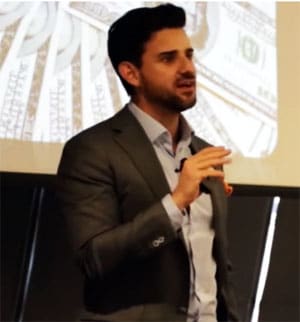
Jordan Peterson is a renowned clinical psychologist and cultural critic known for his insightful takes on cultural issues, politics, and the human psyche. A best-selling author, he has earned both admiration and controversy for his outspoken views.
Early life
Born on June 12, 1962, in Alberta, Canada, Jordan Bernt Peterson grew up in the small town of Fairview. From a young age, he displayed a keen interest in the mysteries of human behavior, which led him to a deep fascination with literature, mythology, and later, psychology.
He was the firstborn among three siblings to Walter and Beverley Peterson. Beverley worked as a librarian at the Fairview branch of Grande Prairie Regional College, while Walter was an educator. He was given the middle name Bernt, pronounced BAIR-ənt, in honor of his great-grandfather from Norway. Peterson’s upbringing was moderately Christian.
During his early teenage years in junior high, Peterson developed a close bond with Rachel Notley and her family. Notley later rose to prominence as the leader of the Alberta New Democratic Party and served as the 17th premier of Alberta. From the age of 13 to 18, Peterson was affiliated with the New Democratic Party (NDP). In his adolescent years, he began to perceive religion as a refuge for the uninformed, vulnerable, and superstitious. He held aspirations for a left-leaning revolution until his encounters with left-wing advocates in university.
In his youth, Peterson developed a profound concern about the Cold War and the looming threat of a nuclear catastrophe.
Jordan obtained his B.A. in Political Science from the University of Alberta in 1982. Recognizing his deeper calling in understanding the human mind, he shifted his academic focus and pursued psychology. In 1991, he earned his Ph.D. in Clinical Psychology from McGill University, where his research on alcoholism and drug abuse gained attention.
Career
Between 1993 and 1998, Jordan Peterson resided in Arlington, Massachusetts. During this period, he worked at Harvard University, initially joining as an assistant professor in psychology and later ascending to an associate professorship.
At Harvard, his research interests included understanding aggression linked to substance abuse. He was known for his readiness to undertake unconventional research, as mentioned in a Harvard Crimson article. Gregg Hurwitz, an author and Peterson’s former student at Harvard, regards Peterson as a significant influence. Harvard’s current professor, Shelley Carson, who was once Peterson’s PhD student, noted Peterson’s lectures drew a fervent student following. After his tenure at Harvard, Peterson went back to Canada in 1998, taking on a full professorial role at the University of Toronto.
In 1999, Peterson published “Maps of Meaning: The Architecture of Belief”, a work that delved into his interests in belief systems and the regulation of emotion. However, it was his 2018 book, “12 Rules for Life: An Antidote to Chaos”, that skyrocketed him to international fame. The book, which provides life advice through a mix of psychology, philosophy, and personal anecdotes, became a bestseller and has since been translated into multiple languages.
Peterson’s scholarly interests in psychology span across several areas, including psychopharmacology, abnormal, neuro, clinical, personality, social, industrial, organizational, religious, ideological, political, and creative realms. He has penned or contributed to over a hundred academic articles and, by 2022, has been referenced over 18,000 times in various publications.
For the majority of his professional journey, Peterson ran a clinical practice, attending to around 20 patients weekly. He’s been an active presence on social media platforms. In 2016, he publicly critiqued Bill C-16 through a video series. By 2017, he paused his clinical activities to focus on new ventures and also took a break from teaching by 2018.
In early 2018, Peterson collaborated with the College of Psychologists of Ontario (CPO) following a complaint about his professional conduct related to patient interactions. The CPO didn’t deem a complete disciplinary procedure necessary. They instead agreed with Peterson’s three-month commitment to refine his practice and enhance patient communication. Prior to this, Peterson had a clean disciplinary record.
By late 2021, Peterson stepped down from his role at the University of Toronto, achieving professor emeritus status. The following year, in May 2022, he was appointed chancellor of Ralston College, an institution focusing on liberal arts.
In January 2023, the CPO directed Peterson to receive training on social media communication due to concerns about his online remarks. Peterson contested the decision, leading to a judicial review. However, in August of the same year, an Ontario court’s panel of three judges supported the CPO’s original directive. The court determined Peterson should bear his training expenses and stressed that non-compliance could lead to a revoked license in Ontario.
While Jordan was well-respected in academic circles, it was his public lectures, initially uploaded on YouTube for his students, that garnered a wider audience. These lectures, covering topics from mythology to the Bible, and from Nietzsche to Dostoevsky, resonated with many, turning him into an unlikely internet celebrity.
Peterson’s journey from a small-town boy in Alberta to an internationally recognized intellectual is a testament to his depth of insight, unwavering curiosity, and commitment to understanding the human psyche. Whether revered or debated, his influence on the cultural and intellectual landscape of the 21st century is undeniable.

Net Worth
By 2023, Jordan Peterson’s net worth is estimated to be in the range of $8 to $10 million. This wealth accumulation is attributed not only to his professorship and clinical practice but also to the sales of his books, particularly “12 Rules for Life”, speaking engagements, and other ventures, such as online courses and the support he receives on crowdfunding platforms.
Achievement
Jordan Peterson’s contributions to psychology and the broader cultural discourse are numerous. Some of his most notable achievements include:
Related Bios

Cole Diamond
Cole Diamond is a Canadian serial entrepreneur and early-stage investor known for his success in building start-up compa...
Read More
Shawn Achor
Shawn Achor is an author and speaker involved in the positive psychology movement. He discusses the connection between h...
Read More
Michael Hyatt
Michael Hyatt is a Toronto-based entrepreneur, investor, and philanthropist. A former Canadian Top 40 Under 40, Michael ...
Read More
Charles Brindamour
Charles Brindamour is a Canadian business executive, best known as the President and Chief Executive Officer of Intact F...
Read More

Social Profile
Jordan Peterson is active on various social media platforms:
Twitter: @jordanbpeterson
YouTube: Jordan B Peterson
Instagram: @jordan.b.peterson
He uses these platforms to share his views, lectures, interviews, and interactions with fellow intellectuals and critics. They serve as a direct channel for his followers and detractors alike to engage with his ideas and debates.